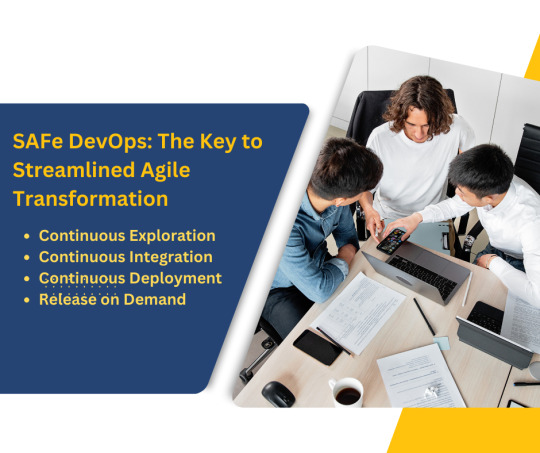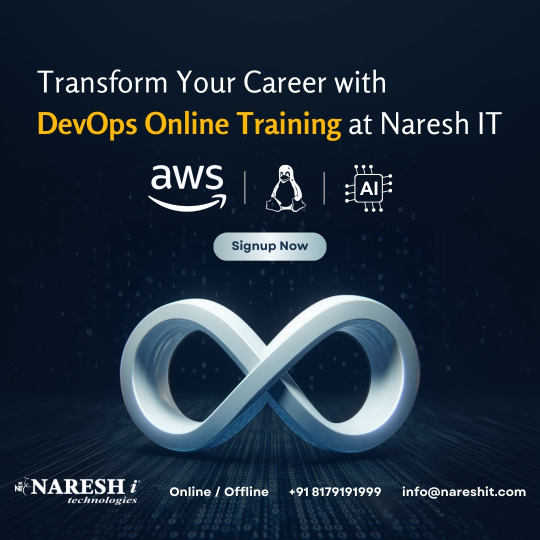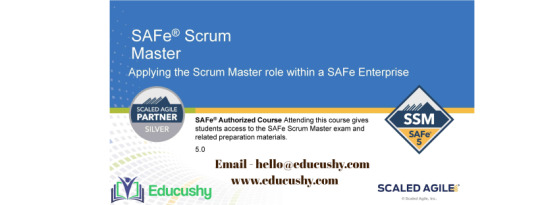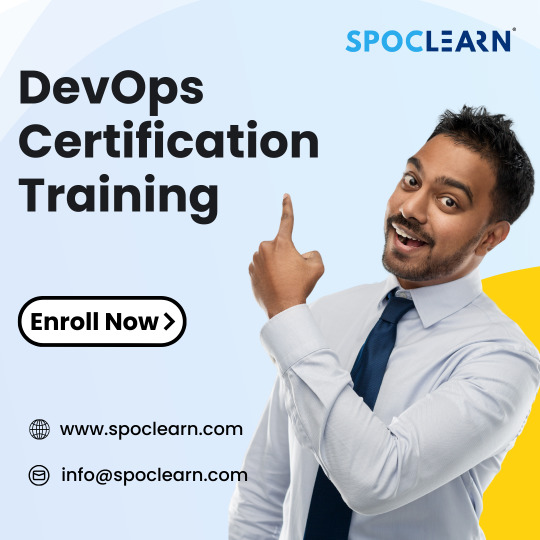#Devops Training and Certification
Text
Expert devops training in indore - LTS Indore
Accelerate your IT career with specialized DevOps training in Indore. Learn essential tools, techniques, and methodologies that bridge the gap between development and operations. Gain hands-on experience in automation, CI/CD, and cloud computing to become a certified DevOps expert. Enroll now to boost your skills and stay ahead in the fast-growing tech industry!
0 notes
Text

Are you looking to become an AWS expert? 🌥️ Join our specialized AWS training program at eMexo Technologies and take your cloud computing skills to the next level! Whether you're just starting or aiming to deepen your expertise, we've got you covered.
👉 CLICK THE LINK https://www.emexotechnologies.com/courses/aws-solution-architect-certification-training-course/
🎯 Why Choose Us?
Expert Instructors with Industry Experience
Flexible Learning Schedules
Real-time Support & Guidance
Certification Assistance
Format: Online / In-Person
📅 Date: 26th Sept 2024
📍 Location: Electronic City, Bangalore
For More Information:
📞 Phone: +91 9513216462
🌐 Website: https://www.emexotechnologies.com/
📧 Email: [email protected]
#awscloud#aws#aws devops#aws certification#aws training#aws course#tech education#tech skills#emexotechnologies#bangalore#electroniccity#traininginstitute#education#learning#certification course#training
0 notes
Text
SAFe DevOps: The Key to Streamlined Agile Transformation
Introduction
In today’s world where Agile methodologies are being adopted by organizations the concept of DevOps has assumed much importance in realizing Agile interventions. The SDLC known as SAFe DevOps, forms a significant segment of the total SAFe framework, which can help organisations integrate the development and operations functions in order to enhance the deliveries in addition to the quality and end customer satisfaction. Moving forward, this blog will discuss the importance of SAFe DevOps, the advantage that it can bring to the organization, and the way that it will help the organization to become competitive in the market.
What is SAFe DevOps?
SAFe DevOps relies on the basis of both, DevOps and SAFe which is an extensive Agile-framework meant for large companies. Through adoption of Gold, it brings together the development and operations teams hence enhancing interaction and productivity. As with every SAFe configuration, the aim of SAFe DevOps is to improve an organisation’s effectiveness when delivering value to customers in a quicker and more dependable way.
Why SAFe DevOps Matters
The common problem that is observed in the traditional IT environment is oppressive separation of the development teams and operation teams, which in turn causes poor performance, time waste, and even the conflict of interests. SAFe DevOps eliminates such barriers by pushing for cross teamwork throughout the value stream, idea to production. Such a working method can also assist in reducing work in progress, denying transfer of material between various functions, and promoting communication feedback.
By implementing SAFe DevOps practices, organizations can:By implementing SAFe DevOps practices, organizations can:
Shorten the time span it takes to take and launch products and services to the market
Improve overall product quality
Dimension of flexibility to cater for evolving business requirements
Usually it means improvement of operational stability and the overall resistant profile of a certain business.
Minimise exposure and adhere to best practice regulation

SAFe DevOps: Key Components
As a framework, SAFe DevOps is made up of a number of elements that enable organisations to deliver software solutions in an agile and efficient manner. These components include:
1. Continuous Exploration (CE)
Continuous exploration consists in identifying and evolving the customer requirements, market trends and the business opportunities. It encompasses taking feedback, determining needs as well as Dual aims setting. In SAFe DevOps, CEO helps to ensure that the development teams are always properly aligned with the business objectives.
2. Continuous Integration (CI)
Continuous Integration means that the code changes are delivered and integrated into the common repository as often as possible. This assists in identifying and correcting issues in the early stages of product development thus maintaining its readiness status all the time. Continuous Integration is among the most important concepts in the SAFe DevOps model since it enables a high-quality product to be delivered in the shortest time possible.
3. Continuous Deployment (CD)
Continuous Deployment is the planning of constant release of slight changes to the production once they have been approved. According to the SAFe DevOps, CD guarantees that any new change and enhancement can be easily released to the customers. This also helps in maintaining low down time and low interferences to the overall experience of the end user.
4. Release on Demand
In SAFe DevOps, Release on Demand allows organizations to release new features and updates to the customers as soon as it is possible. This helps to be more sensitive in reacting to the fluctuation of customers’ demands and market situations. As a result of separating, releases are not tied into the same time frames which means that businesses can offer value to customers on a more consistent and efficient basis.
Benefits of SAFe DevOps
Adopting SAFe DevOps has many advantages that can greatly influence the capacity of an organisation to compete in the business environment of the present day. Some of the most notable benefits include:Some of the most notable benefits include:
1. Faster Delivery
Combining development and operations, SAFe DevOps helps organisations release new products and updates more often. This speed provides competitive advantage to business by enabling them to respond to the needs of their customers and also shortening of time to market.
2. Improved Product Quality
By incorporating DevOps into SAFe DevOps, constant testing and integration are done to increase the chances of identifying defects at the early stages thus producing quality products. Continuous feedback also ensures that if there is something wrong on one’s side it is corrected to ensure that it does not influence the end user results.
3. Enhanced Collaboration
SAFe DevOps deals severally with various teams to ensure that they do not work in isolation from the other. It has emphasis that development, operations, and other constituent goals are aligned in this process of creating value for customers. These result in bringing in the collective culture that ensures that the processes are less congested and the outcomes excellent.
4. Greater Flexibility and Adaptability
As one of the key elements of SAFe DevOps, one of the main considerations is flexibility of the method to satisfy dynamically changing demand of businesses and markets it operates in. Such flexibility enables the organization to change its course when one is deemed appropriate based on the customers’ reactions or other trends are noted. When it comes to strategy, feedback cycles shorter and more frequent releases makes it possible for businesses to constantly improve their products and services.
5. Increased Customer Satisfaction
Delivering value more frequently and improving the quality of products also enables organizations to meet the customers’ needs and that is why SAFe DevOps is effective. Quick action towards the feedback from the customers and frequent follow-ups keep the customers more involved and happy about the product.
How to Implement SAFe DevOps in Your Organisation
To successfully implement SAFe DevOps in your organization, follow these steps:To successfully implement SAFe DevOps in your organization, follow these steps:
Educate and Train Your Teams: Conduct training to all the developers, operation people and leadership personnel about SAFe DevOps. Training makes certain that all the participants know what DevOps entails and where it is positioned in SAFe.
Adopt Automation: DevOps engineering is one of the key components that accelerate automation in the context of SAFe. The manually conducted processes ranging from continuous testing to deployment are streamlined during the automation process thus ensuring fast and accurate outcomes.
Measure and Optimize: This in turn should be leveraged together with other metrics to measure the level of SAFe DevOps implementation. Based on your activity, ensure that you track your performance so that you can determine where changes need to be made so as to enhance the efficiency of the processes involved.
Foster a DevOps Culture: Promote cross team collaboration in your organization so that everyone works towards the achievement of the same objectives. Promote interchange between development and operations and do away with undesirable barriers to cross-functional communication.
Conclusion
SAFe DevOps is an organizational transformation model that is designed to provide support in improving the agility of an organization, increase the delivery speed and enhance the quality of products being developed. By adopting the four commandments of SAFe DevOps.name, which include: Continuous Exploration, Continuous Integration, Continuous Deployment, and Release on Demand, any business can remain relevant in the ever-growing market. SAFe DevOps can be achieved by training, automation and collaboration and the benefits are enormous for the implementation.
0 notes
Text

Boost your career with hands-on DevOps Online Training. Learn from industry experts and gain practical skills to become a DevOps pro. Enroll in our DevOps Online Training to get certified and accelerate your career!
#devops#DevOpsOnlineTraining#LearnDevOps#devops certification#DevOps Courses#DevOps Career#online training#devops engineer#devops tools#devops automation#DevOps Cloud#DevOps Best Practices#DevOps Hands-on Training#DevOps for Beginners
0 notes
Text
What should I study to get AWS certification?
To prepare for an AWS certification, you'll need to study a combination of AWS-specific knowledge and general cloud computing concepts. Here’s a guide on what to study based on the certification you’re aiming for:
1. AWS Certified Cloud Practitioner
Target Audience: Beginners with no prior AWS experience.
What to Study:
AWS Global Infrastructure
Basic AWS services (EC2, S3, RDS, VPC, IAM, etc.)
Cloud concepts and architecture
Billing and pricing models
Basic security and compliance
2. AWS Certified Solutions Architect – Associate
Target Audience: Those with some experience designing distributed applications.
What to Study:
AWS core services in-depth (EC2, S3, VPC, RDS, Lambda, etc.)
Designing resilient architectures
High availability and fault tolerance
AWS best practices for security and compliance
Cost optimization strategies
AWS Well-Architected Framework
3. AWS Certified Developer – Associate
Target Audience: Developers with some experience in AWS.
What to Study:
AWS services used for development (Lambda, DynamoDB, S3, API Gateway)
Writing code that interacts with AWS services
AWS SDKs and CLI
Security best practices for development
Deployment strategies (CI/CD, CodePipeline, etc.)
4. AWS Certified SysOps Administrator – Associate
Target Audience: System administrators with some experience in AWS.
What to Study:
AWS operational best practices
Monitoring and logging (CloudWatch, CloudTrail)
Automation using CloudFormation and OpsWorks
Networking and security on AWS
Troubleshooting AWS environments
Backup and recovery methods
5. AWS Certified Solutions Architect – Professional
Target Audience: Experienced Solutions Architects.
What to Study:
Advanced networking topics
Complex architecture design patterns
Migration strategies and methodologies
Cost management and optimization
Advanced AWS services (RedShift, Kinesis, etc.)
AWS Well-Architected Framework in depth
6. AWS Certified DevOps Engineer – Professional
Target Audience: DevOps engineers with extensive AWS experience.
What to Study:
Continuous integration and continuous deployment (CI/CD)
Monitoring and logging strategies
Infrastructure as Code (CloudFormation, Terraform)
Security controls and governance
Automated incident response
High availability and fault tolerance
7. AWS Certified Security – Specialty
Target Audience: Security professionals.
What to Study:
AWS security services (IAM, KMS, WAF, etc.)
Data protection mechanisms
Incident response
Logging and monitoring on AWS
Identity and access management
Compliance and governance
Resources for Study:
AWS Free Tier: Hands-on practice with real AWS services.
AWS Whitepapers: Official documents on best practices.
AWS Documentation: Detailed guides on each service.
Online Courses: Platforms like A Cloud Guru, Udemy, Coursera.
Practice Exams: To get a feel of the actual exam environment.
AWS Certified Study Guide Books: Available for different certifications.
Tips:
Gain hands-on experience with AWS services.
Focus on understanding concepts rather than memorizing facts.
Use AWS's official resources and recommended third-party courses.
Regularly take practice exams to assess your readiness.
Let me know if you need more information on any specific certification!
#online certification and training#online training course#awscertification#awscourse#awstraining#awscertificationanadtraining#aws devops training#aws course#aws cloud#aws certification#aws certification and training
0 notes
Text

safe devops certification training in boston

In today’s competitive business environment, earning professional certifications like SAFe Agilist and PMP can significantly enhance your career prospects. These certifications not only validate your skills but also prepare you for leadership roles in project management and agile methodologies. Whether you’re in Phoenix, Virginia, Dallas, New York, New Jersey, Washington, or California, there are excellent opportunities to enroll in top-tier certification training programs. Here’s how these certifications can benefit your career and what you should look for in a training program.
1. The Importance of SAFe Agilist Certification
The SAFe Agilist certification is a leading credential for professionals in the field of Agile. It focuses on applying lean-agile principles and practices at scale. Here’s why getting this certification is a smart career move:
Industry Demand: With more companies adopting Agile, there’s a growing demand for professionals who can implement SAFe (Scaled Agile Framework).
Leadership Skills: The certification equips you with the skills to lead Agile transformation across organizations.
Career Growth: Certified SAFe Agilists often enjoy better job opportunities and higher salaries.
SAFe Agilist Certification Training in Phoenix
If you’re located in Phoenix, you have access to excellent SAFe Agilist certification training programs. These programs are designed to help you master the SAFe framework and pass the certification exam with confidence.
Experienced Trainers: Look for courses led by certified SAFe Program Consultants (SPCs) with extensive industry experience.
Interactive Learning: Engage in interactive sessions, workshops, and real-world case studies to reinforce your learning.
Comprehensive Study Materials: Ensure the program provides all the necessary materials, including practice exams and study guides.
SAFe Agilist Certification Training in Virginia
Virginia is another hub for SAFe Agilist certification training. Whether you’re in Northern Virginia or closer to the coast, you can find training programs that cater to your schedule and learning style.
Flexible Scheduling: Many programs offer weekend and evening classes to accommodate working professionals.
Networking Opportunities: Training sessions often bring together professionals from various industries, providing valuable networking opportunities.
Certification Support: Top programs offer continued support even after the course, helping you prepare for the certification exam.
SAFe Agilist Certification Training in Dallas
Dallas is a thriving business center, making it an ideal location for SAFe Agilist certification training. The city offers a variety of programs to suit different experience levels.
Customized Training: Some programs offer customized training based on your current level of Agile knowledge and experience.
Hands-On Practice: Engage in practical exercises that simulate real-world challenges you’ll face as a SAFe Agilist.
Certification Exam Prep: Benefit from mock exams and personalized feedback to ensure you’re ready for the certification test.
2. The Value of PMP Certification
The PMP (Project Management Professional) certification is globally recognized and respected across industries. It validates your expertise in managing projects and is a benchmark for project management excellence.
Global Recognition: PMP certification is recognized worldwide, making it a valuable credential if you plan to work in different countries.
Comprehensive Knowledge: The certification covers a broad range of project management topics, from planning and execution to monitoring and closing projects.
Enhanced Career Opportunities: PMP-certified professionals often see significant improvements in job prospects and earning potential.
PMP Certification Training in New York
New York is a prime location for PMP certification training. The city offers world-class training programs that prepare you for the PMP exam and equip you with practical project management skills.
Intensive Training: Choose from intensive boot camps that cover all aspects of the PMP exam.
Experienced Instructors: Learn from instructors with real-world project management experience.
Networking Events: Many training programs include networking events where you can connect with other project management professionals.
PMP Certification Training in New Jersey
For those in New Jersey, there are numerous options for PMP certification training. Whether you’re in the northern part of the state or closer to Philadelphia, you can find high-quality training programs that meet your needs.
Blended Learning Options: Consider programs that offer a mix of online and in-person classes for flexibility.
Exam Prep Assistance: Look for courses that provide extensive exam preparation resources, including practice questions and study groups.
Post-Certification Support: Some programs offer continued support to help you apply your PMP skills in the workplace.
PMP Certification Training in Washington
Washington is another excellent location for PMP certification training. The city’s vibrant professional community provides a dynamic environment for learning.
Government and Private Sector Focus: Find training programs that cater to both government and private sector project management needs.
Interactive Sessions: Engage in interactive training sessions that emphasize real-world applications of PMP concepts.
Exam Readiness: Benefit from thorough exam preparation, including timed practice tests and strategy sessions.
PMP Certification Training in California
California’s diverse economy makes it a great place to pursue PMP certification training. From tech startups to large corporations, there’s a demand for PMP-certified professionals across the state.
Location-Specific Training: Some programs offer specialized training that focuses on industries prominent in California, such as technology and entertainment.
Flexible Learning Paths: Choose from a variety of learning formats, including online courses, in-person classes, and hybrid options.
Career Services: Many programs include career services that help you leverage your PMP certification to advance your career.
Conclusion
Investing in SAFe Agilist certification training in Phoenix, Virginia, or Dallas or PMP certification training in New York, New Jersey, Washington, or California is a strategic move that can elevate your career. These certifications not only demonstrate your expertise but also open doors to new opportunities and higher earning potential. By choosing a training program that offers comprehensive support, experienced instructors, and flexible learning options, you’ll be well on your way to achieving your professional goals.
#pmp certification training in boston#pmp certification training in houston#pmp certification training in dallas#pmp certification training in virginia#safe devops certification training in new york
0 notes
Text
DevOps Online Training | AWS DevOps Training
Best DevOps Tools: The Comprehensive List | 2024
DevOps tools are crucial for automating and streamlining the software development lifecycle, facilitating collaboration between development and operations teams, and ensuring the continuous delivery of high-quality software. Here's a comprehensive list of the best DevOps tools in 2024, categorized by their primary function:

1. Version Control Systems (VCS)
Git: The most popular distributed version control system, widely used for source code management.
Git Hub: A cloud-based hosting service for Git repositories with added features for collaboration and CI/CD.
Git Lab: Another Git repository manager that includes built-in CI/CD and project management features.
Bit bucket: Atlassian's Git solution, which integrates seamlessly with other Atlassian products.
2. Continuous Integration/Continuous Deployment (CI/CD)
Jenkins: One of the most popular open-source CI/CD tools, known for its vast plugin ecosystem.
CircleCI: A cloud-based CI/CD service that supports fast, efficient builds and deployments.
Travis CI: A CI service integrated with GitHub, popular for open-source projects.
GitLab CI: Integrated within GitLab, it offers CI/CD pipelines directly from your Git repositories.
Azure DevOps: A cloud service from Microsoft that provides CI/CD pipelines, along with other DevOps services.
3. Configuration Management
Ansible: An open-source automation tool for configuration management, application deployment, and task automation.
Puppet: A configuration management tool that helps manage infrastructure as code.
Chef: Another configuration management tool that automates infrastructure provisioning.
SaltStack: Known for its speed, SaltStack manages large-scale infrastructure and can perform tasks in milliseconds.
4. Containerization
Docker: The most popular containerization platform, allowing developers to package applications into containers.
Kubernetes: A container orchestration tool that automates the deployment, scaling, and management of containerized applications.
Open Shift: Red Hat's enterprise Kubernetes platform, with added developer and operational tools.
Rancher: A container management platform that simplifies running Kubernetes clusters.
5. Infrastructure as Code (IaC)
Terraform: An open-source IaC tool that allows users to define and provision data center infrastructure.
AWS Cloud Formation: Amazon’s IaC tool, used to model and set up AWS resources.
Azure Resource Manager (ARM): Microsoft's IaC service for managing Azure resources.
Pulumi: A modern IaC tool that supports multiple languages and cloud platforms.
6. Monitoring and Logging
Prometheus: An open-source monitoring and alerting toolkit, often used with Kubernetes.
Grafana: A visualization tool that works with Prometheus and other data sources for monitoring dashboards.
ELK Stack (Elasticsearch, Logstash, Kibana): A powerful suite for log management and analysis.
Splunk: A commercial solution for searching, monitoring, and analyzing machine-generated data.
Datadog: A cloud-based monitoring and analytics platform for IT infrastructure, applications, and logs.
7. Collaboration and Communication
Slack: A messaging platform that integrates with various DevOps tools for team communication.
Microsoft Teams: A collaboration tool that integrates with the Microsoft ecosystem, including Azure DevOps.
Trello: A project management tool used for tracking tasks and project progress.
Jira: Atlassian's tool for agile project management, integrating well with other development tools.
8. Security
Snyk: A security tool that helps developers find and fix vulnerabilities in open-source dependencies.
Aqua Security: A security solution for securing containerized applications.
SonarQube: A tool for continuous code quality and security inspection.
HashiCorp Vault: A tool for securely managing secrets and sensitive data.
9. Artifact Management
Nexus Repository: A repository manager for storing and managing build artifacts.
JFrog Artifactory: A universal artifact repository manager that integrates with CI/CD tools.
Harbor: An open-source container image registry that secures and manages Docker images.
10. Testing
Selenium: A popular framework for testing web applications.
JMeter: A tool for performance testing web applications and other services.
SonarQube: Besides security, it's also used for continuous inspection of code quality.
Visualpath is the Leading and Best Software Online Training Institute in Hyderabad. Avail complete DevOps Training Worldwide. You will get the best course at an affordable cost.
Attend Free Demo
Call on - +91-9989971070
Visit: https://visualpathblogs.com/
WhatsApp: https://www.whatsapp.com/catalog/919989971070
Visit https://www.visualpath.in/devops-online-training.html
#DevOps Training#DevOps Online Training#DevOps Training in Hyderabad#DevOps Online Training in Hyderabad#DevOps Training Online#DevOps Training in Ameerpet#DevOps Training Institute in Ameerpet#DevOps Online Training institute Hyderabad#DevOps Certification Training in Hyderabad#AWS DevOps Course Online Hyderabad#AWS DevOps Online Training#AWS DevOps Training
0 notes
Text
The Hidden Benefits of DevOps Certifications: Beyond Salary and Job Titles
In the fast-evolving realm of technology, DevOps has emerged as a critical framework that blends software development and IT operations to enhance collaboration, increase deployment frequency, and achieve higher efficiency. While the primary motivations for obtaining a DevOps certification are often higher salaries and prestigious job titles, there are many less obvious but equally significant benefits that come with these certifications. This article delves into the hidden advantages of DevOps certifications that extend beyond the conventional career incentives.
Enhanced Problem-Solving Skills
DevOps certifications provide a structured pathway to mastering problem-solving. The training programs are designed to expose participants to real-world challenges and scenarios that require critical thinking and innovative solutions. This practical approach equips professionals with the ability to diagnose and resolve issues effectively, fostering a culture of proactive troubleshooting within their organizations.
Improved Communication and Collaboration
A core tenet of DevOps is fostering seamless collaboration between development and operations teams. Certification programs emphasize communication skills and teamwork, encouraging participants to bridge gaps and break down silos. This enhanced collaboration leads to more cohesive teams, streamlined workflows, and a unified approach to achieving business objectives.
Greater Adaptability and Continuous Learning
The tech landscape is in constant flux, and DevOps certifications prepare professionals to adapt quickly to changes. The continuous learning aspect of these certifications encourages individuals to stay updated with the latest tools, methodologies, and best practices. This adaptability not only makes them valuable assets to their current employers but also enhances their long-term career resilience in a rapidly changing industry.
Increased Job Satisfaction
With a certification in DevOps, professionals often find themselves in roles that align better with their skills and interests. The sense of accomplishment from applying their knowledge to optimize processes and deliver high-quality results can significantly boost job satisfaction. Moreover, the empowerment that comes from contributing meaningfully to an organization’s success can lead to a more fulfilling career.
Networking Opportunities
Pursuing DevOps certifications opens doors to a vast network of professionals in the field. Certification programs often include access to forums, conferences, and online communities where participants can connect, share experiences, and learn from industry peers. These networks can lead to mentorship opportunities, collaborations, and even potential job offers in the future.
Contribution to Organizational Growth
Certified DevOps professionals bring a wealth of knowledge and best practices to their organizations, contributing to enhanced efficiency and productivity. Their ability to streamline operations, automate processes, and foster a culture of continuous improvement can lead to significant organizational growth. As they implement DevOps principles, they play a crucial role in driving innovation and maintaining a competitive edge in the market.
Personal Growth and Confidence
The journey to achieving a DevOps certification is a challenging one that requires dedication and perseverance. Completing the certification not only signifies mastery of complex concepts but also instills a sense of personal achievement. This newfound confidence can positively impact various aspects of an individual’s life, from career pursuits to personal projects.
Conclusion
While salary increases and prestigious job titles are attractive outcomes of obtaining a DevOps certification, the hidden benefits extend far beyond these tangible rewards. From enhanced problem-solving skills and improved collaboration to greater adaptability and personal growth, DevOps certifications offer a comprehensive package of professional and personal development opportunities. By investing in a DevOps certification, professionals can unlock a world of benefits that will serve them well throughout their careers.
0 notes
Text
7 DevOps Principles That Will Transform Your IT Culture

In today’s fast-paced digital landscape, organizations are constantly seeking ways to improve their software development and delivery processes. DevOps, a set of practices that combines software development (Dev) and IT operations (Ops), has emerged as a powerful methodology to achieve this goal. By fostering a culture of collaboration, automation, and continuous improvement, DevOps helps organizations deliver high-quality software faster and more efficiently. This blog post will explore the key principles of DevOps methodology that can transform your IT culture and drive success in your organization.
Principle 1: Collaboration and Communication
Breaking Down Silos
One of the fundamental key principles of DevOps methodology is fostering collaboration and communication between development and operations teams. Traditionally, these teams have operated in silos, leading to inefficiencies and misunderstandings. DevOps encourages breaking down these silos and promoting a culture of shared responsibility. By working together, development and operations teams can better understand each other’s challenges and work towards common goals.
Tools and Practices for Enhanced Communication
To facilitate collaboration, organizations can leverage various tools and practices. For instance, using chat platforms like Slack or Microsoft Teams can improve real-time communication. Additionally, implementing regular stand-up meetings and cross-functional team workshops can help ensure that everyone is on the same page. Effective communication is crucial for identifying and resolving issues quickly, ultimately leading to faster and more reliable software delivery.
Principle 2: Continuous Integration and Continuous Delivery (CI/CD)
Automating the Build and Deployment Process
Continuous Integration (CI) and Continuous Delivery (CD) are core components of the key principles of DevOps methodology. CI involves automatically integrating code changes from multiple contributors into a shared repository several times a day. This practice helps identify and address integration issues early, reducing the risk of conflicts and bugs. CD, on the other hand, focuses on automating the deployment process, ensuring that code changes can be released to production quickly and reliably.
Benefits of CI/CD
Implementing CI/CD pipelines offers several benefits, including faster time-to-market, improved code quality, and reduced manual effort. By automating repetitive tasks, development teams can focus on more strategic activities, such as writing new features and improving existing ones. Additionally, CI/CD enables organizations to deliver updates and new features to customers more frequently, enhancing the overall user experience.
Principle 3: Infrastructure as Code (IaC)
Defining Infrastructure Through Code
Infrastructure as Code (IaC) is a practice that involves managing and provisioning infrastructure using code, rather than manual processes. This approach is one of the key principles of DevOps methodology as it allows for consistent and repeatable infrastructure deployments. By defining infrastructure in code, organizations can version control their infrastructure configurations, track changes, and ensure that environments are consistent across development, testing, and production.
Tools for Implementing IaC
Several tools are available to help implement IaC, including Terraform, Ansible, and AWS CloudFormation. These tools enable organizations to define their infrastructure using declarative or imperative code, making it easier to manage and scale environments. IaC also facilitates collaboration between development and operations teams, as infrastructure configurations can be reviewed, tested, and approved just like application code.
Principle 4: Monitoring and Logging
Importance of Monitoring and Logging
Monitoring and logging are critical components of the key principles of DevOps methodology. Effective monitoring allows organizations to track the performance and health of their applications and infrastructure in real-time. Logging, on the other hand, provides detailed records of system events and user activities. Together, these practices help organizations identify and resolve issues quickly, ensuring that applications run smoothly and efficiently.
Implementing Monitoring and Logging Solutions
To implement effective monitoring and logging, organizations can use a variety of tools and platforms. Prometheus, Grafana, and ELK Stack (Elasticsearch, Logstash, and Kibana) are popular choices for monitoring and logging. These tools provide powerful visualization and analysis capabilities, enabling teams to gain insights into system performance and identify potential bottlenecks. By continuously monitoring and analyzing logs, organizations can proactively address issues and improve the overall reliability of their applications.
Principle 5: Security Integration
Shifting Security Left
Security is a critical aspect of the key principles of DevOps methodology. Traditionally, security has been an afterthought in the software development lifecycle, often leading to vulnerabilities and compliance issues. DevOps promotes the concept of “shifting security left,” which means integrating security practices early in the development process. By incorporating security into the CI/CD pipeline, organizations can identify and address security issues before they reach production.
Tools and Practices for DevSecOps
To implement DevSecOps, organizations can use tools such as static application security testing (SAST), dynamic application security testing (DAST), and container security scanning. These tools help identify vulnerabilities in code, applications, and container images. Additionally, implementing security best practices, such as code reviews, threat modeling, and regular security training, can help ensure that security is an integral part of the development process.
Principle 6: Continuous Improvement and Learning
Embracing a Culture of Continuous Improvement
Continuous improvement is a cornerstone of the key principles of DevOps methodology. DevOps encourages organizations to embrace a culture of continuous learning and improvement, where teams regularly reflect on their processes and identify areas for enhancement. This involves conducting regular retrospectives, gathering feedback, and implementing changes to improve efficiency and effectiveness.
Encouraging Experimentation and Innovation
To foster continuous improvement, organizations should encourage experimentation and innovation. This can be achieved by providing teams with the freedom to try new tools, techniques, and approaches. By creating a safe environment for experimentation, organizations can drive innovation and discover new ways to improve their development and delivery processes. Additionally, investing in training and professional development can help teams stay up-to-date with the latest industry trends and best practices.
Principle 7: Customer-Centric Approach
Focusing on Customer Needs
A customer-centric approach is one of the key principles of DevOps methodology. DevOps emphasizes the importance of understanding and addressing customer needs throughout the development process. By involving customers in the feedback loop and prioritizing their requirements, organizations can deliver products and features that provide real value.
Implementing Feedback Loops
To implement a customer-centric approach, organizations can establish feedback loops that involve customers at various stages of the development lifecycle. This can include conducting user interviews, gathering feedback through surveys, and analyzing user behavior data. By continuously gathering and incorporating customer feedback, organizations can ensure that their products meet customer expectations and drive satisfaction.
Conclusion
The key principles of DevOps methodology outlined in this blog post can transform your IT culture and drive success in your organization. By fostering collaboration and communication, implementing CI/CD, embracing IaC, monitoring and logging, integrating security, promoting continuous improvement, and adopting a customer-centric approach, organizations can achieve faster, more reliable software delivery and improved customer satisfaction.
0 notes
Text

Elevate your career with top-rated DevOps certification courses in Chennai. Learn cutting-edge tools and methodologies from industry experts, designed to make you job-ready in the competitive tech industry.
#Best DevOps Certification Course inchennai#aws devops certification course#devops training course#DevOps course with placement#devops course in chennai
0 notes
Text

Enhance your IT skills with Spoclearn's DevOps Foundation Certification Training in United States. This comprehensive program covers essential DevOps principles, including continuous integration, delivery, and automation. Led by industry experts, our training offers hands-on labs, real-world case studies, and flexible learning options, including virtual classrooms and self-paced modules. Gain the knowledge and certification to streamline workflows, improve collaboration, and boost your career in the fast-growing field of DevOps. Join Spoclearn and take the first step towards becoming a proficient DevOps professional. Enroll today!
Spoclearn is a global training provider and corporate certification training company, offering a wide range of over 100 certification and non-certification courses across various domains including ITSM, Project Management, Agile and Scrum, DevOps, Quality Management, Cybersecurity, Digital Marketing, Microsoft Office, Data Science, AWS, and Development & Testing. We are dedicated to transforming human talent and fostering a learning culture that meets complex market demands. Our vision is to be the Single Point of Contact for Learning needs worldwide, aiming to equip individuals and enterprises with the knowledge and skills needed to thrive in a dynamic business landscape.
For More Information
Call Us
• USA : +1 (908) 2937144
• India : +91 83417-05065
• UK : +44 1313813655
Email Us
• [email protected]
Addresses
• United States - 3500 South DuPont Highway Suite DK 101, Dover, DE 19901, United States
• India - No.8/2, Novel Office Centre, Halasuru Rd, Bengaluru, 560042, KA, INDIA
0 notes
Text

Unlock your future with our Microsoft Azure + DevOps course! 🚀 Master cloud computing and continuous integration with hands-on projects and expert guidance. Enjoy a 40% discount for a limited time. Enroll now! 🌐📈
Course link: https://www.emexotechnologies.com/courses/microsoft-azure-devops-training-course-az-400/
Course Benefits:
Learn from Industry Experts
Hands-on Experience with Real Projects
Certification upon Completion
Career Support and Placement Assistance
📅 Demo Class on: [ 30th Aug 2024 ]
📍 Location: [ Electronic City, Bangalore ]
💰 Special Offer: Enroll now and get a 40% discount!
For Get More Info:
📞 Phone: [ +91 9513216462 ]
🌐 Website: [ https://www.emexotechnologies.com/ ]
📧 Email: [ [email protected] ]
#azure devops#microsoft azure#azure training#azuretraininginstituteinelectroniccitybangalore#devopscourseinelectroniccity#techeducation#techskills#career growth#certification course#e learning#learning#emexotechnologies#bangalore#electroniccity
0 notes
Text

#DevOps courses#DevOps training institute#DevOps classes#development and operations Courses#DevOps certification courses
0 notes
Text
BEST DEVOPS COURSES TRAINING INSTITUTE IN NOIDA

Softcrayons a training center based in Noida provide great programs in devops courses that focus in preparing students to efficiently compete in the world of development and IT operations. The devops courses offered at Softcrayons are developed and taught by professionals who have the strictly related background, and include such aspects as continuous integration, continuous delivery, automation, configuration management, containerization, etc.
One of the reasons that make Softcrayons to stand out is because practical assignments, projects and cases are components included in the training programme. Using this approach, students receive focused attention and support from experienced professionals who know DevOps and can help them grow and develop.
Softcrayons has modern features with developed resources and effective architecture that contributes to an enhanced learning process for students. Softcrayons provides a number of training courses along with placement facilities and the institute holds a position as one of the best devops courses training institutes in Noida to provide the individuals a platform and opportunity to grow in the IT field of devops.
#devops training in noida#devops course in noida#best devops institute in noida#best devops institute#devops training#devops course#devops#devops consulting services#devops certification#devops consulting companies
0 notes
Text

DevOps Online Course at Just Rs.6,000/- only...
Refer a friend and get Rs.1,000/- cash bonus...
Enroll Now !! or Refer a Friend...
Call as at +91 9487107243... Or Email us at [email protected] Or Visit https://www.svsitsolutions.in
#devops#devopsengineer#devopsengineering#devopsengineering#devopscommunity#devopstools#devopsjobs#devopsdays#devopsonlinetraining#devopsonline#devopsonlinecourse#devopstamil
#devopscertification
#devops#devops certification#devops online training#online training#aws devops#azure devops#cloudcomputing#devops tools#information technology
0 notes
Text

pmp certification training in boston
#pmp certification training in new jersey#pmp certification training in washington#pmp certification training in california#pmp certification training in atlanta#pmp certification training in phoenix#pmp certification training in boston#pmp certification training in houston#pmp certification training in dallas#pmp certification training in virginia#safe devops certification training in new york
0 notes